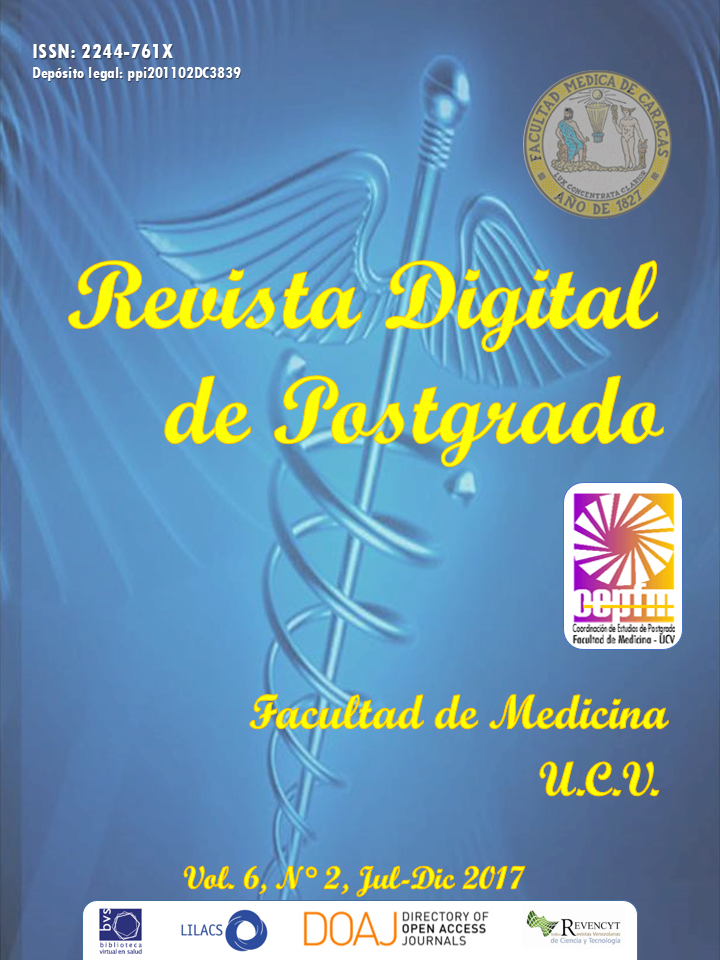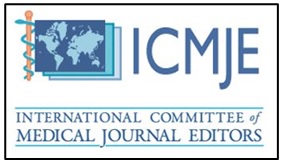Inmunopatogenia of psoriasis. New progress
Keywords:
Psoriasis, genetics, autoimmunity, immunopathogenesis, immunotherapyAbstract
Psoriasis is a chronic inflammatory disease of the skin. Its etiology involves several agents such as genetic susceptibility, immunological factors and multiple environmental elements, which can trigger and / or exacerbate the disease. In recent decades thorough research has been conducted on the pathogenesis of psoriasis, several T-cell subtypes that play a key role in the establishment of inflammation in skin lesions have been recognized. Genetic studies provide the basis for the construction of the disease model, demonstrating that dendritic cells, T lymphocytes and keratinocytes play a key role in the pathology of this entity, as well as a set of cytokines that drive psoriatic inflammation , such as include TNF , IL-22, IL-23 and IL-17, which promote the inflammatory response of keratinocytes, and the production of antimicrobial peptides, cytokines and chemokines, thus perpetuating the inflammatory response. At present, the development of several highly effective biological drugs has revolutionized the treatment of moderate to severe plaque psoriasis. These drugs are a reflection of a greater understanding of the pathogenesis of psoriasis, including the central importance of IL-23 and IL-17 and different signaling pathways. The objective of this work is to perform a critical review of the literature on psoriasis and the mechanisms involved in its imnunopathogenesisDownloads
References
Diani M, Altomare G, and Reali E. T Helper Cell Subsets in Clinical
Manifestations of Psoriasis. J Immunol Res. 2016; 2016:1-7.
Sticherling M. Psoriasis and autoimmunity. Autoimmun Rev. 2016;
:1167-70.
Alexander H, Nestle FO. Pathogenesis and immunotherapy in
cutaneous psoriasis: what can rheumatologists learn?. Curr Opin
Rheumatol. 2017; 29(1):71-8.
Huang R, Li L, Wang M, Chen XM, Huang QC, Lu CJ. An
Exploration of the Role of MicroRNAs in Psoriasis. Medicine
(Baltimore). 2015; 94(45): e2030.
Mahil S, Capon F, Barker J. Update on psoriasis
immunopathogenesis and targeted immunotherapy. Semin
Immunopathol. 2016; 38(1):11-27.
González F, Páez E, Orta L, Rondón A, Olavarría F, Goihman M et
al. I Consenso Nacional De Psoriasis. Dermatol Venez. 2009; 47
(3): 37-56.
Puiga L, Juliàb A, Marsal S. Psoriasis: bases genéticas y
patogenéticas. Actas Dermosifiliogr. 2014; 105(6):535-45.
Marrakchi S, Guigue P, Renshaw B, Puel A, Pei XY, Fraitag S et al.
Interleukin-36-receptor antagonist deficiency and generalized
pustular psoriasis. N Engl J Med. 2011; 365: 620-8.
Jordan C, Cao L, Roberson E, Pierson KC, Yang CF, Joyce CE et al.
PSORS2 is due to mutations in CARD14. Am J Hum Genet. 2012;
:784-95.
Hawkes J, Nguyen G, Fujita M, Florell SR, Callis Duffin K, Krueger
GG et al. microRNAs in Psoriasis. J Invest Dermatol. 2016; 136
(2):365-71.
Hernández MC, García R. miARN en enfermedades inflamatorias
de la piel. Rev Digit Postgrado. 2016; 5(2): 30-6.
Lovendorf M, Skov L. miRNAs in inflammatory skin diseases and
their clinical implications. Expert Rev Clin Immunol. 2015;
(4):467-77.
Xiaoyun Y, Jingang A, Yunhui H, Li Z, Yan N, Fan W et al.
MicroRNA-194 regulates keratinocyte proliferation and
differentiation by targeting Grainyhead-like 2 in psoriasis. Pathol
Res Pract. 2016; 213 (2): 89-97.
Meisgen F, Xu N, Wei T, Janson PC, Obad S, Broom O et al. MiR21
is up-regulated inpsoriasis and suppresses T cell apoptosis. Exp
Dermatol. 2012; 21:312-4.
Lovendorf M, Zibert J, Gyldenlove M, Røpke MA, Skov L.
MicroRNA-223 and miR-143 are important systemic biomarkers for
disease activity in psoriasis. J Dermatol Sci. 2014; 75:133-9.
Sun Y, Zhang J, Zhai T, Li H, Li H, Huo R et al. CCN1 promotes IL1β
production in keratinocytes by activating p38 MAPK signaling in
psoriasis. Sci Rep. 2017;7:43310.
Owczarczyk A, Placek W. Interleukin-17 as a factor linking the
pathogenesis of psoriasis with metabolic disorders, Int J Dermatol.
; 56(3):260-8.
Peng C, Zhang S, Lei L, Zhang X, Jia X, Luo Z et al. Epidermal
CD147 expression plays a key role in IL-22-induced psoriatic
dermatitis. Sci Rep. 2017; 8(7):44172.
Wu P, Ma G, Zhu X, Gu T, Zhang J, Sun Y et al. Cyr61/CCN1 is
involved in the pathogenesis of psoriasis vulgaris via promoting IL8
production by keratinocytes in a JNK/NF-κB pathway. Clin
Immunol. 2017; 174:53-62.
Pinru W, Gang M, Ningli L. The profile of Cyr61 expression data
correlate to the skin inflammation in psoriasis, Data Brief. 2017;
: 487-91.
Campa M, Mansouri B, Warren R, Menter A. A Review of Biologic
Therapies Targeting IL-23 and IL-17 for Use in Moderate-to-Severe
Plaque Psoriasis. Dermatol Ther (Heidelb). 2016; 6(1):1-12.
Galluzzo M, D'adamio S, Bianchi L, Talamonti M. Tildrakizumab for
treating psoriasis. Expert Opin Biol Ther. 2017; 17:1-13.
Bruin G, Loesche C, Nyirady J, Sander O. Population
Pharmacokinetic Modeling of Secukinumab in Patients With
Moderate to Severe Psoriasis. J Clin Pharmacol. 2017. 57(7):876-
Banerjee S, Biehl A, Gadina M, Hasni S, Schwartz DM. JAK-STAT
Signaling as a Target for Inflammatory and Autoimmune Diseases:
Current and Future Prospects. Drugs. 2017; 77(5):521-46.
Downloads
How to Cite
Issue
Section
License
Usted es libre de:
- Compartir — copiar y redistribuir el material en cualquier medio o formato
- Adaptar — remezclar, transformar y construir a partir del material
- para cualquier propósito, incluso comercialmente.
Bajo los siguientes términos:
-
Atribución — Usted debe dar crédito de manera adecuada, brindar un enlace a la licencia, e indicar si se han realizado cambios. Puede hacerlo en cualquier forma razonable, pero no de forma tal que sugiera que usted o su uso tienen el apoyo de la licenciante.
- No hay restricciones adicionales — No puede aplicar términos legales ni medidas tecnológicas que restrinjan legalmente a otras a hacer cualquier uso permitido por la licencia.











